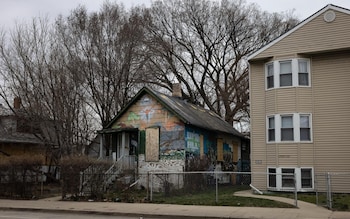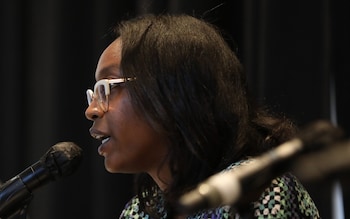America’s first reparations programme which hands out $25,000 (£19,500) to black citizens has been hit by a legal challenge for discriminating against white people.
Evanston, a suburb of Chicago, was accused of a “brazen violation of the law” after handing out nearly $5 million (£3.9 million) to 193 black citizens over the past two years.
Officials have vowed to “vehemently defend” the programme.
The case could have nationwide repercussions, as roughly a dozen states and cities are considering similar policies.
The legal challenge, filed by conservative group Judicial Watch on behalf of six residents, argues that the scheme’s “race-based eligibility requirement” violates the US Constitution’s 14th Amendment, which concerns the rights of citizens.
“This programme redistributes tax dollars based on race,” Tom Fitton, Judicial Watch president, said, according to The Washington Post. “That’s just a brazen violation of the law.”
Evanston has earmarked $20 million (£15.7 million) for black people who either lived in the city or whose direct ancestors lived there between 1919 and 1969.

The scheme began by providing grants to help people buy or repair a home in the suburb
Credit: James Breeden/Breeden Media LLC
The city has said it enforced discriminatory housing policies during the period and hopes its programme will “increase homeownership and build the wealth” among its black population.
Those who qualified for the reparations programme initially received a $25,000 grant to buy or repair a home. City officials brought in an option for $25,000 cash payments last year.
Hundreds of people remain on the waiting list.
Affirmative action challenges
Kamilah Moore, chairman of California’s Reparations Task Force, said: “What happens in this case will definitely have an effect on what kind of programmes we see rolling out.”
Cynthia Vargas, Evanston’s communications and engagement manager, vowed to defend the reparations policy but declined to comment on the specifics of the lawsuit.




Kamilah Moore, chairman of California’s Reparations Task Force, has warned the case could have national repercussions
Credit: Carolyn Cole/Los Angeles Times
The case is part of a series of legal challenges prompted by the Supreme Court’s decision in 2023 to strike down attempts by universities to increase the number of black, Hispanic and other minority groups – known as affirmative action policies.
The ruling closed the door on race-based reparations programmes, Horace Cooper, a former constitutional law professor, told The Washington Post.
On Monday, a US court ruled that a venture capital firm in Georgia should be temporarily blocked from issuing grants reserved for businesses owned by black women.
Doing so would likely discriminate against business owners of other races, it said.


